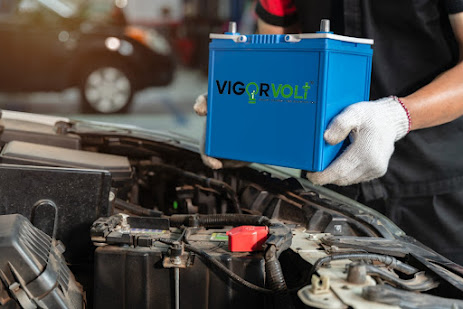Numerous factors, including an imbalanced diet, a hard day at work, or even spending too much time with others, might make you feel exhausted. And even if your car battery usually doesn't attend many social events during off-peak hours, there are still a lot of other activities that could consume it just as much.
Why Does Car Battery Drain?
Although it can be inconvenient, a dead car battery can also be prevented. You must first understand what causes a dead battery in order to prevent one. Put the jumper cables away and have a look at these seven potential causes of your car battery dying instead.
1. Your headlights were left on.
The first thing to examine if your car battery continues draining is your lighting. The headlights on many modern cars are programmed to turn off after a particular period of time. However, if your automobile lacks this feature, your headlights can continue to operate either until you turn them off or until your battery is fully depleted.
2. There Is a "Parasitic Draw" Issue
The clock, radio, and alarm system all receive electricity from the battery even while the car is not moving. Your battery shouldn't be significantly impacted by these items. When a car is not in use, factors like interior lights, door lights, or even faulty relays can deplete the battery.
You usually don't have to worry about the battery dying while you're blaring the radio on your commute to work because the alternator recharges it while your engine is running. However, while the engine is turned off, the alternator is unable to replenish the battery, allowing minor electrical malfunctions to completely empty your battery. These electrical glitches put stress on the battery, which is referred to as a parasitic drain.
By turning off all of the lights and ensuring that your doors, glove box, and trunk are completely closed and secured before exiting the vehicle, you can help prevent parasitic draws.
[Also Read : Batteries: The New Renewable Resource]
3. You have Loose or Corroded Battery Connections.
Your battery's positive and negative connections may occasionally become loose over time. Additionally, these terminals could corrode. You can have difficulties starting the car if your connections get loose or corroded since your battery can't effectively transfer its power! You might even lose control of the vehicle while driving and harm its electronic systems. Cleaning the battery connections on your automobile on a regular basis might aid in preventing corrosion-related issues! Visit the best battery manufacturer in Indore and let a qualified technician take care of cleaning your battery terminals if you're unsure how to do it yourself.
4. The weather is unusually hot or cold.
Your car's battery may experience issues during the chilly winter months and the scorching summer months. Batteries that are more recent typically survive high seasonal temperatures better. Nevertheless, if your battery is older, extreme cold or heat could impair it or possibly kill it. Come to Firestone Complete Auto Care for a free battery check if you notice your battery is struggling to withstand the weather; our auto specialists will assist identify and resolve the problem.
5. You can't Charge the Battery While Driving.
When you start the engine, your car depends on your battery. However, the alternator is what keeps your battery charged while your car is running. Even if you were just travelling, it could be challenging to start your car if your alternator isn't functioning properly because it can't charge your battery efficiently.
So that’s all in this article if you want to learn more about batteries visit to the battery manufacturers in Indore

Comments
Post a Comment